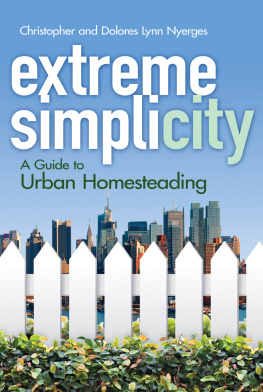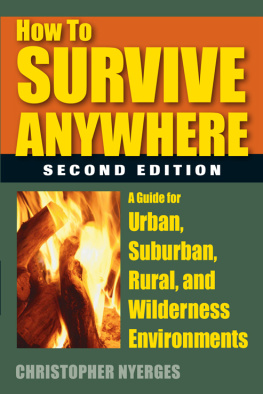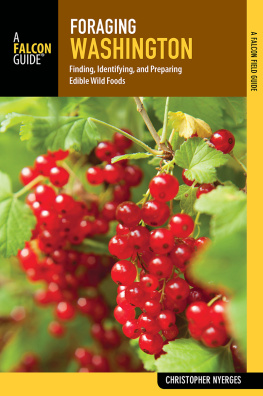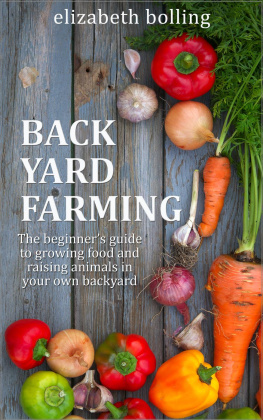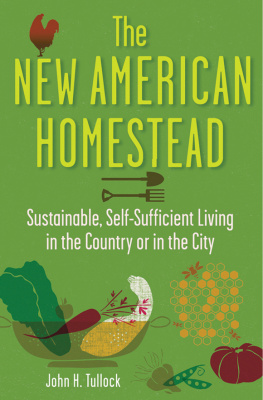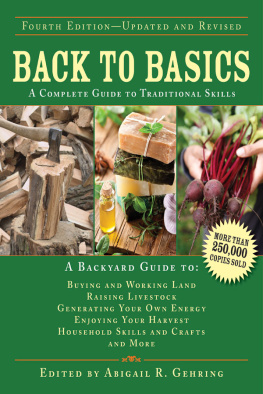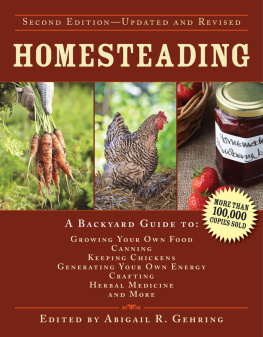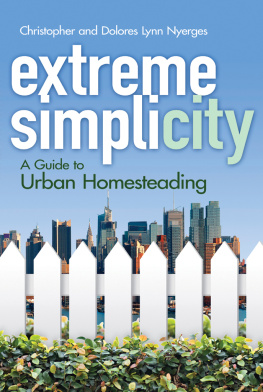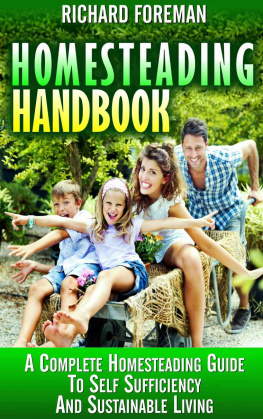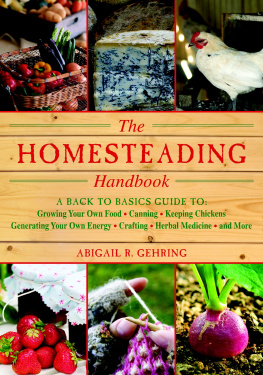Christopher and Dolores Lynn Nyerges
extreme simplicity
A Guide to
Urban Homesteading
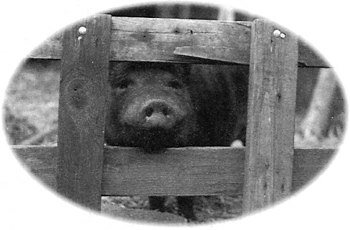
Dover Publications, Inc.
Mineola, New York
Copyright
Foreword Copyright 2013 by Christopher Nyerges
Copyright 2002 by Christopher and Dolores Lynn Nyerges
Unless otherwise noted, illustrations copyright Barbara Carter
All rights reserved.
Bibliographical Note
This Dover edition, first published in 2013, is an unabridged republication of the work originally published by Chelsea Green Publishing Company, White River Junction, Vermont, in 2002 under the title and subtitle Extreme Simplicity: Homesteading in the City. A new sixteen-page color insert, located between , has been added to the present edition. All photographs are courtesy of the authors. A new Foreword to the 2013 edition has been specially prepared for this volume by Christopher Nyerges.
Library of Congress Cataloging-in-Publication Data
Nyerges, Christopher.
Extreme simplicity: a guide to urban homesteading / Christopher and Dolores Lynn Nyerges. [Rev. ed.]
p. cm.
Guide to urban homesteading.
This Dover edition, first published in 2013, is an unabridged republication of the work originally published by Chelsea Green Publishing Company, White River Junction, Vermont, in 2002 under the title and subtitle Extreme Simplicity: Homesteading in the City.
Includes bibliographical references and index.
eISBN-13: 978-0-486-31584-3
1. Urban homesteadingCaliforniaLos Angeles. I. Nyerges, Dolores Lynn, 1946 II. Title. III. Title: Guide to urban homesteading.
HD7289.42.U62L676 2013
640dc23
2013010226
Manufactured in the United States by Courier Corporation
49114501 2013
www.doverpublications.com
Live light upon the land
if you would not be earthbound.
Shining Bear
Acknowledgments
We are very thankful to have had in our lives the influence of Richard E. White, founder of the Rainbow School and the nonprofit educational think-tank WTI. Through our classes and meetings and seminars with him, we have developed a certain mind-set of living lightly on the land that has become second nature to us. Many of the things we now do and many of the systems we now employ in our household were directly or indirectly inspired through our interactions with White. We are extremely grateful to have had that friendship and guidance.
Over the years, various other experts and programs have influenced our thinking. We name some of these individuals in the book, but there are far too many over too many years to mention individually. To all of you we extend a big thank you!
Foreword to the 2013 Edition
It has been well over a decade since the first release of our Extreme Simplicity book, where we documented our nearly two decades of living lightly in the city, in the hilly backwoods of Los Angeles.
Dolores and I wrote about how we lived, and what we did, to practice an ecological and economical lifestyle. Our blueprint for life was that everything we did, and all the resources we interacted with, should be karma-positive, or karma-neutral. By this I mean that we judged our actions by how self-reliant we became, and whether or not our actions were a part of the solution for the salvation of the Earth.
We used this guideline to consider whether or not to have a lawn, how to deal with trash, what to plant, how to deal with utilities, what sort of employment to engage in, etc. We were not wealthy, nor were we the smartest. So under those circumstances, this book is our testament to those decisions and actions we took.
A lot has changed since Extreme Simplicity was first released in 2002. We have witnessed eco-living go nearly mainstream, as folks in increasing numbers are replacing the front lawn with a garden. Voluntary simplicity, sustainable landscaping, organic gardening, and urban farming have all established solid roots around the country. Were glad to have been a part of that mindset.
In 2008, Dolores passed away, which was a big loss to me personally, and to all those who knew and loved Dolores. But she lives on in this book, which embodies so much of her words and thinking.
Despite clear signs of progress, there is still much fear and cynicism in the world. Do all you can to not let fear, and panic, and cynicism, control your thinking and your actions. Accept that you cannot change the world, but that you can at least work on changing yourself. Be a part of the solution. Think globally and act locally. And as Gandhi said, Be the change that you wish to see in the world.
CHRISTOPHER NYERGES
October 2012
Introduction

I prize even the failures and disillusionments which are but steps towards success.
GANDHI
There are many books written by people who were sick of modern society, and who moved to the country, built their house, and started growing their own food. Thats goodits just not what we, Christopher and Dolores, have chosen to do.
Simply put, we have chosen to live lightly on the earth right here in the city, and to do so in a way that represents solutions to the problems that today confront everyone. Our way of living more lightly on the earth has been described by many names: voluntary simplicity, living country in the city, an ecology lifestyle, and so forth. We regard what we do as practical survival.
Both of us are from the San Gabriel Valley, the eastern side of Los Angeles County. We are both from the city and have many roots here.
But we have each lived in remote rural settings as well. Since early childhood, we have been drawn to faraway, less crowded places. In part, this was a result of growing up in the crowded suburbs and cities of Southern California. And weve learned many valuable lessons from the wilderness, from farming communities, from the Hawaiian back-country, from the silent deserts and pure beachesthe places where we dreamed about living and being.
When our paths crossed in 1980, we were each in our own ways involved in sharing a more natural way of life through teaching about nutrition, wild foods, and home self-reliance. Christopher was interested in Native American skills and beliefs, backpacking, wild edibles. Dolores was interested in intentional communities, food storage, gardening, spiritual seeking.
We both became affiliated with a nonprofit think-tank organization, WTI, Inc., whose fundamental premise is that in todays world there is nowhere to run away to. WTIs purpose was, and continues to be, to research and educate in all areas of survival. Survival, of course, has many levels of meaning, and the goals and aspirations of this group have coincided with our own. The founder of WTI has been influential to both of us in the life choices we have made, and we continue to learn with and work with this unique organization (see Resources for contact information).
We have long been aware of the environmental degradation occurring everywhere, resulting in pollution, trash, toxic landfills, poisoned water, and disappearance of wilderness. Of course, the ongoing crisis of overpopulation is what drives these other environmental dangers, and certain forms of perverse thinking underlie all the separate problems that we see in the world.
In the 1960s and 1970s, the two of us found many avenues of escape, such as travel, backpacking, living a peaceful existence in a remote area, and so on. But we have not been content merely to escape. Escapism is a controlled fantasy. You can never really escape the extant reality.
Next page
